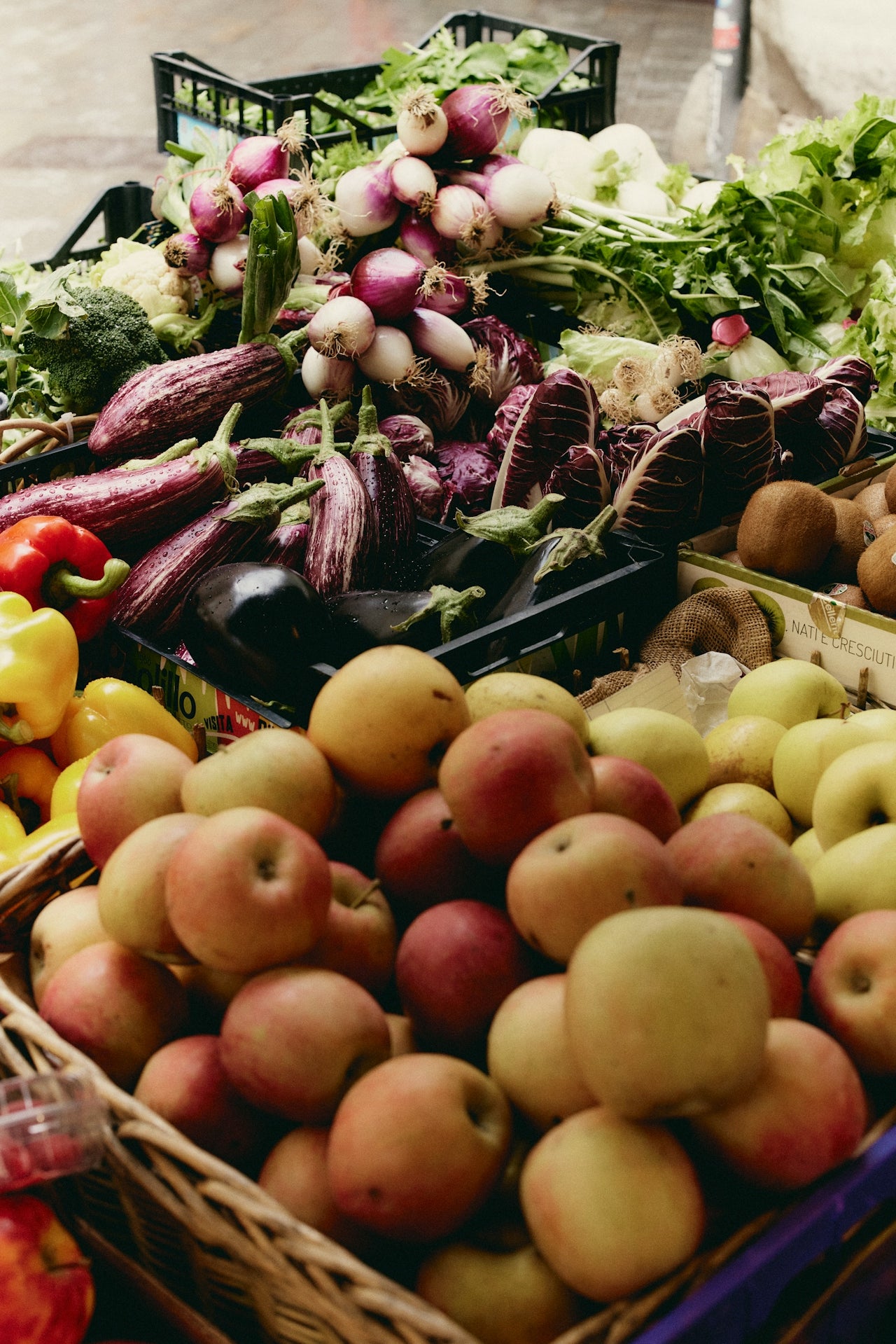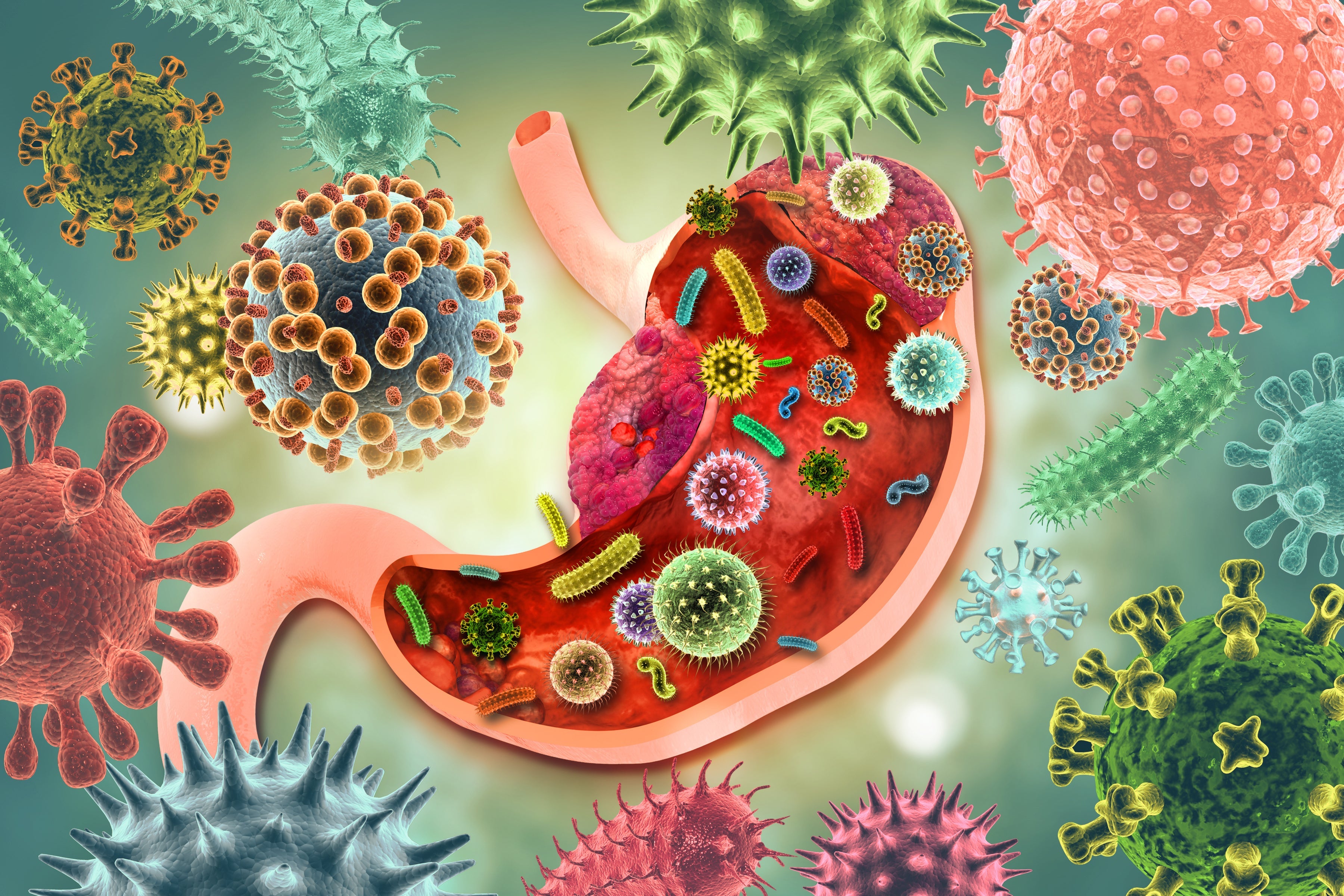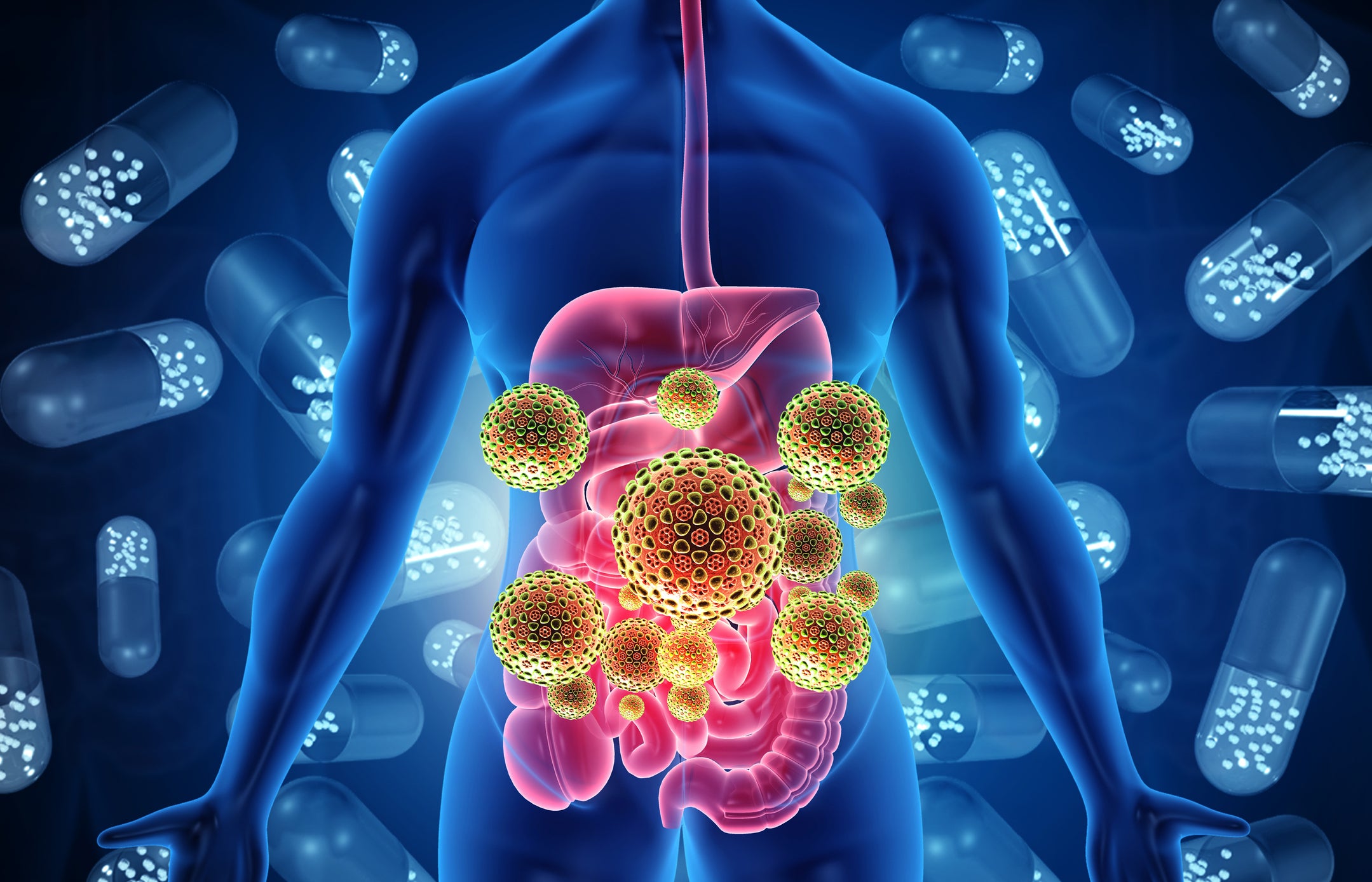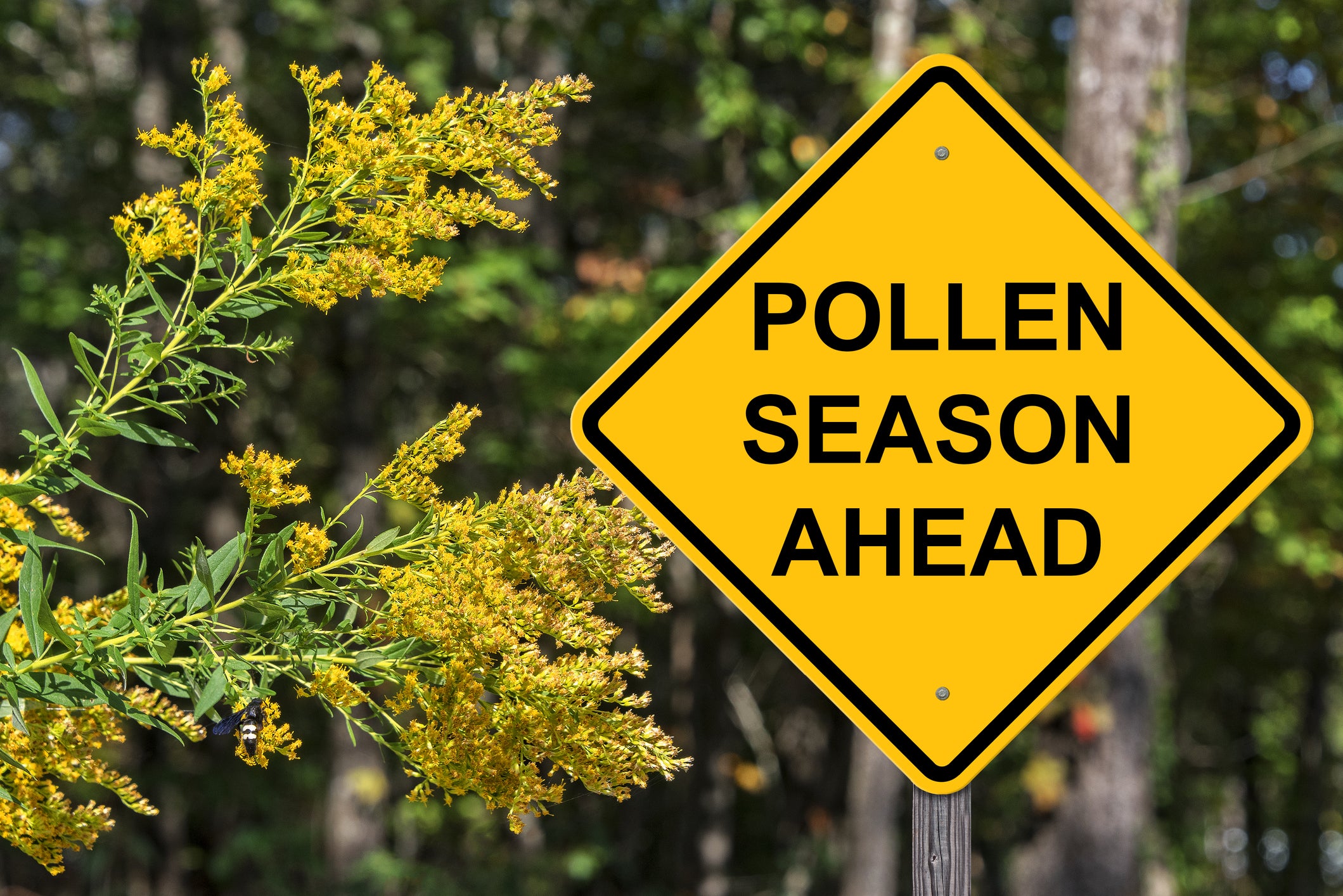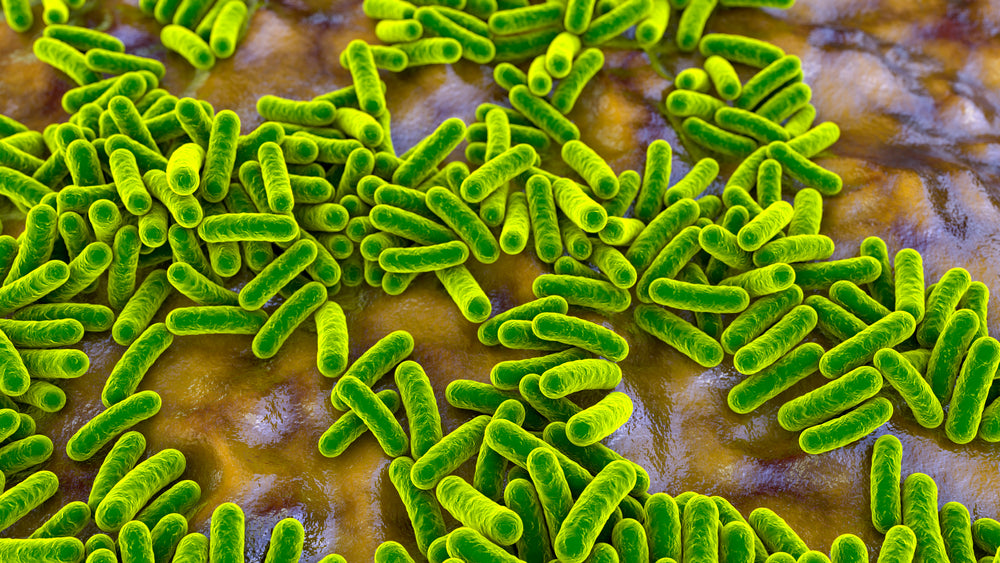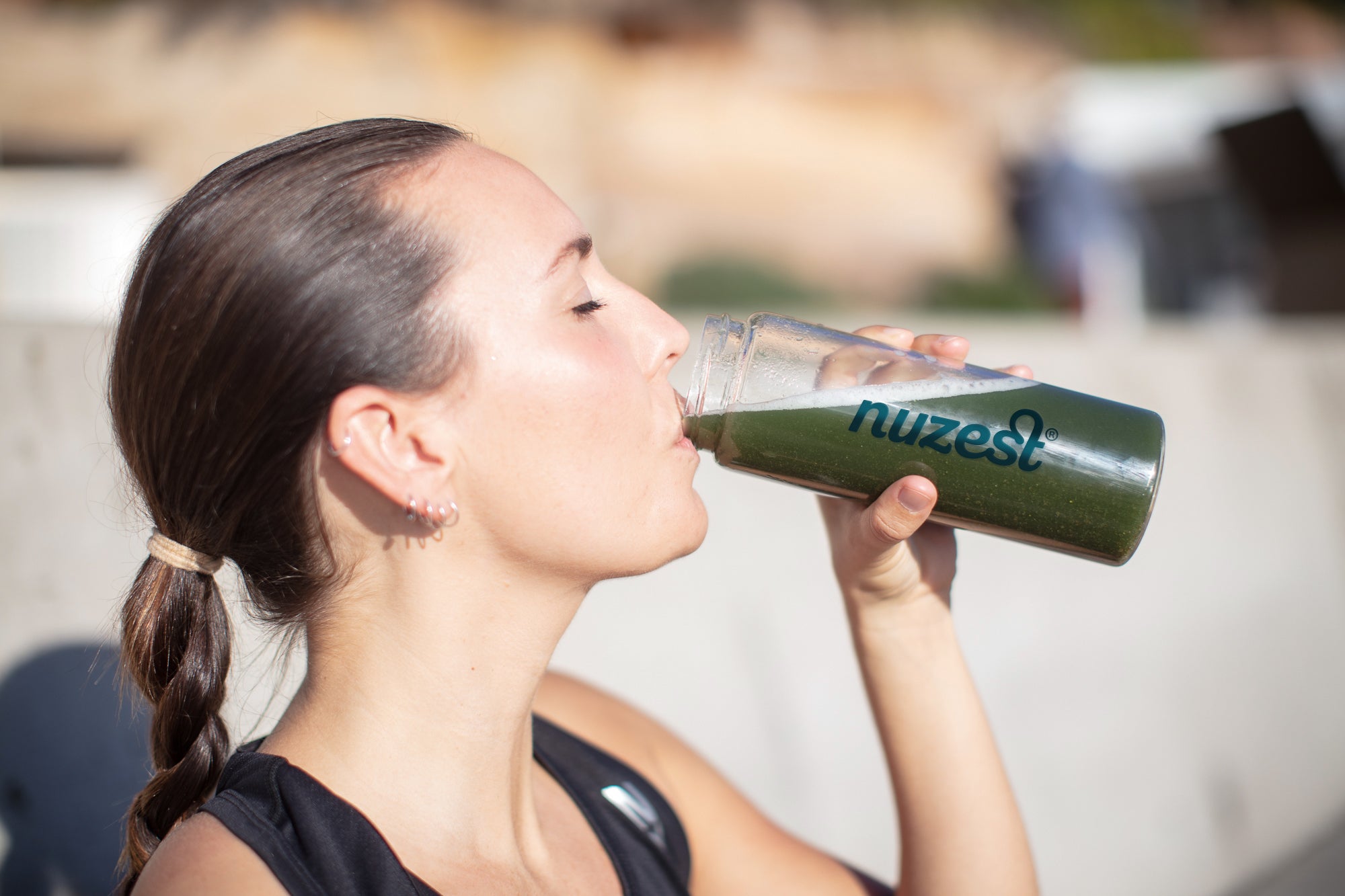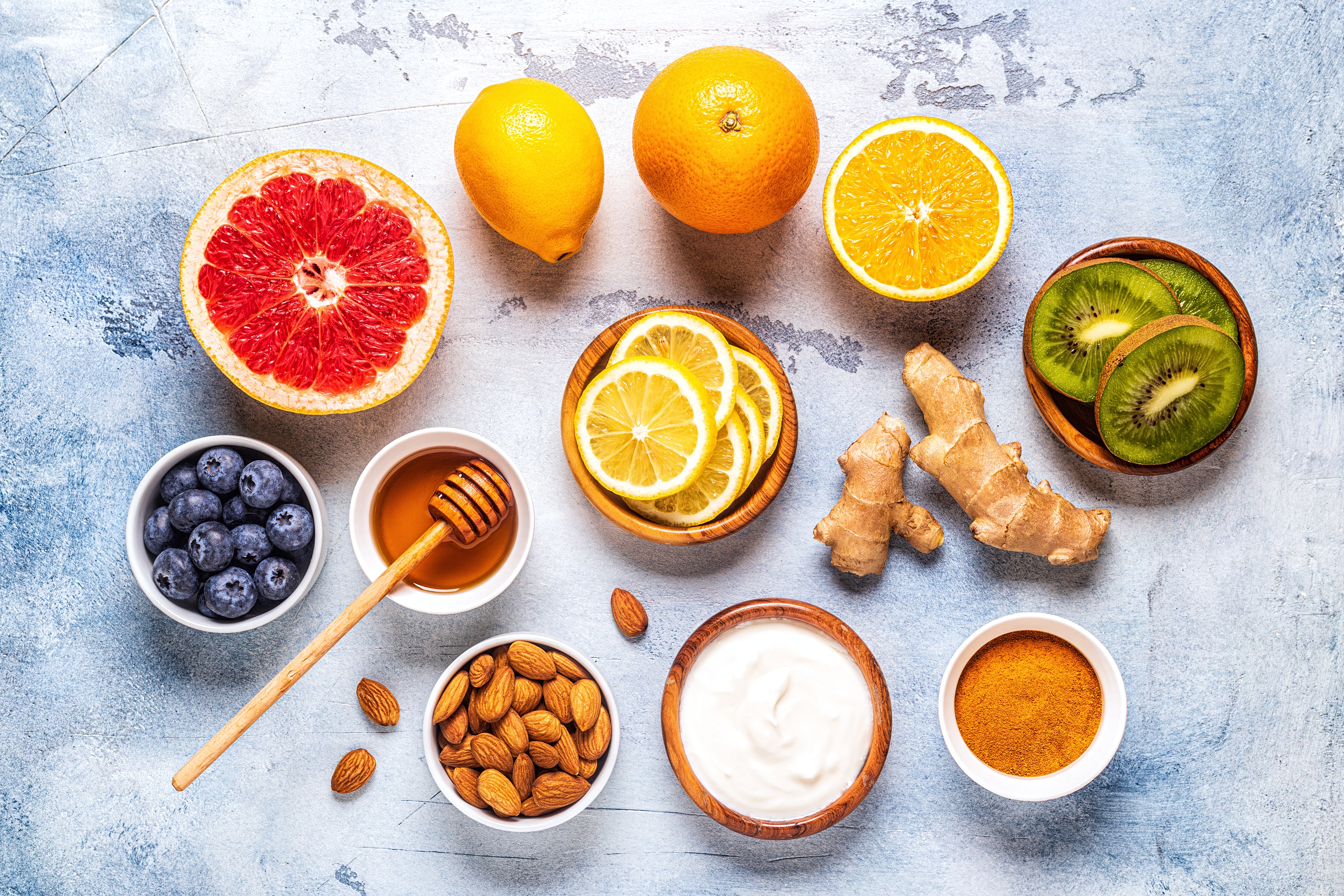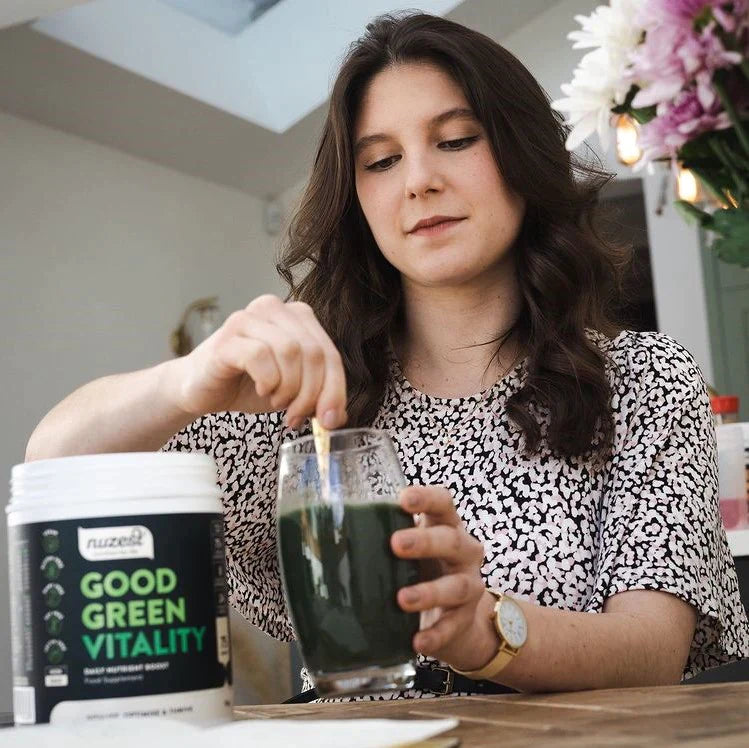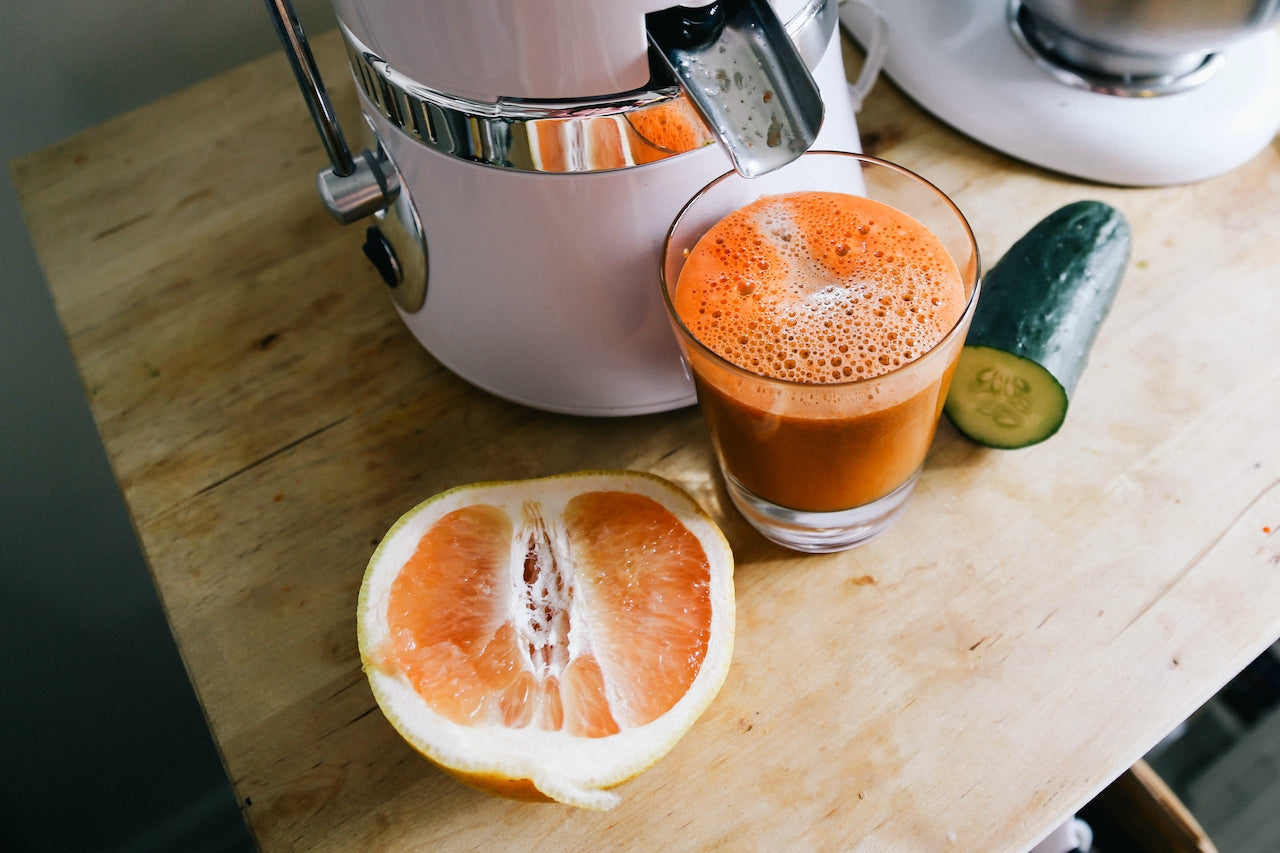Whey protein. Egg white protein. Soy protein. Animal-based protein. Plant-based protein. When you’re sorting through all the types of proteins available, you’re inevitably going to have questions. After all, with so many protein powder options, it can be difficult to separate myth from fact, especially when it comes to relative newcomers like pea protein (or even just vegan protein in general).
If you’re like most of us, you’ve probably wondered, “is pea protein healthy?” You may have even asked yourself, “is pea protein good for you?” Do you know the facts and myths about pea protein, so you know if pea protein is right for you?
Are Any Myths About Pea Protein True?
The good news is that pea protein offers a plant-based protein (yes, a completely vegan protein) option that’s ideal for those who experience common food allergies, such as dairy, soy or gluten. And, unlike many other plant-based proteins, it’s complete with nine essential amino acids. Nuzest's plant-based pea protein has up to 21 grams of protein per 25-gram serving. Best of all, it’s a sustainable source of protein, with much lower carbon and water footprints than animal-based proteins.
So how do you separate fact from myth about pea protein and make the best nutritional choice for yourself or your loved ones? Read below to learn the top myths about pea protein you need to know.
Table of Contents
- Can Pea Protein Cause Acne?
- Can Pea Protein Cause Gas?
- Can Pea Protein Cause Constipation?
- Can Pea Protein Make You Fat?
- Can Pea Protein Cause Inflammation?
- Can Pea Protein Cause Allergies?
- Can Pea Protein Cause Headaches?
- Can Pea Protein Cause Kidney Stones?
- Can Pea Protein Cause Hair Loss?
- Can Pea Protein Cause Nausea?
- Can Pea Protein Cause Bloating?
- Can Pea Protein Cause Upset Stomach?
- Pea Protein for Weight Gain
- Pea Protein for Muscle Gain
- Pea Protein for IBS
- Pea Protein Taste
- Is Pea Protein Low FODMAP?
- Is Pea Protein Safe During Pregnancy?
- Is Pea Protein Hard to Digest?
- Protein Without Lectins
Can Pea Protein Cause Acne?
When you’re working hard to get lean and healthy, the last thing you want to deal with is acne. Unfortunately, acne breakouts and protein seem to go hand in hand… especially if that protein comes from whey.¹
Why? Because whey protein powders have been linked to an uptick in acne. When extracted from cow’s milk, whey may affect several hormonal growth factors, which studies suggest may exacerbate breakouts.²
You might ask, can pea protein cause acne? This is one of the myths about pea protein that are circulating the Internet. Fortunately, pea protein (a vegan protein source) comes from plants and does not contain acne-triggering hormones. Instead, this clean source of protein offers the complete range of amino acids necessary for muscle health and energy, without the disruptive hormones. In short, pea protein can help keep your skin clear and healthy.

Can Pea Protein Cause Gas?
If you’ve ever used whey- or casein-based protein, you’ve likely experienced this less-than-pleasant side effect (or at least been an unwilling recipient at the gym). Why do so many proteins cause flatulence and, more importantly, is there a way to avoid gas after consuming protein? Can pea protein cause gas? This is one of the myths about pea protein that people believe to be true.
The answer is simple: Many people experience difficulty digesting milk-based proteins. Research indicates that up to 17 percent of people self-report as having a milk allergy,³ and other studies suggest that up to 19.9 of people may experience milk allergies.⁴ Those with an allergy or intolerance may experience flatulence.⁵
Plus, animal-based proteins may also contain sulfur, which contributes to that undesirable odor. For those who’d rather not pass gas, pea protein offers an alternative.
Because pea protein comes from plants, it doesn’t contain flatulence-triggering lactose. Instead, this sustainably sourced protein offers a clean alternative. You can enjoy all the benefits of protein, without setting yourself up for unpleasant (and potentially embarrassing) side effects.
Can Pea Protein Cause Constipation?
It’s no secret that a high protein, low carb diet is popular these days. After all, protein leaves you feeling fuller, longer. But for some who up their protein intake, this lifestyle change results in less, ahem, movement. So does pea protein normally cause constipation? No, this is another one of the myths about pea protein.
Many forms of traditional medicine, such as Ayurvedic and Chinese, utilize peas specifically to promote digestive health.⁶ Not only are they easy to digest, peas’ fiber content helps keep you feeling full, cutting down on unhealthy eating. This strengthens the digestive tract and promotes regularity.

Can Pea Protein Make You Fat?
When combined with resistance training, pea protein can support building muscle mass. Studies show that weight lifters who ingested 50 grams of pea protein each day gained the same amount of mass as weight lifters who ingested the same amount of whey protein, indicating that pea protein is just as effective as dairy-based protein.⁷
For those who don’t seek to build mass, pea protein serves as a source of lean protein that’s low in added sugars and fat. Research shows that protein keeps you feeling full longer than fats or carbs, helping you to regulate caloric intake. One study found that taking 20 grams of pea protein half an hour before eating a meal reduced the average calories consumed by 12 percent.⁸
While bodybuilders rely on protein to gain mass, others may use protein as part of a healthy plan to get lean. Fortunately, pea protein serves as an effective, sustainable protein source for both.
Can Pea Protein Cause Inflammation?
Generally, pea protein does not cause inflammation; in fact, it may help reduce inflammation. When you consume a substance that you’re sensitive or allergic to, your body protects itself by releasing antibodies. This kicks your immune system into gear and your white blood cells begin producing histamine, a natural compound that causes dilated blood vessels, increased blood flow, and tissue swelling. Together, this is known as an inflammatory response.
For many people, proteins sourced from dairy like whey and casein trigger an inflammatory response.⁹ Common symptoms include hives, headache, bloating, nausea, runny or stuffy nose, and shortness of breath. Over time, inflammation has been found to contribute to heart disease, certain types of cancer and other chronic illnesses.10,11,12
Fortunately, pea protein does not trigger this inflammatory response in those who are sensitive to dairy or soy. Not only does allergen-friendly pea protein reduce inflammation, but studies also suggest that pea protein may benefit immune system function.¹³ In addition, peas are high in the amino acid lysine, which helps maintain a healthy immune system.

Can Pea Protein Cause Allergies?
This is a common question we get asked all the time because it is one of the top myths about pea protein. Good news: pea protein powders are free from common food allergens. You won’t find dairy, gluten, soy, eggs, nuts or corn in pea protein, making it a natural choice. In fact, our pea protein enjoys a 98 percent digestibility rating, meaning it is easy to digest for those who are prone to stomach upset.
Peas are part of the legume family. By some estimates, about 95 percent of those with peanut allergies can tolerate peas."15 However, those who are allergic to legumes, such as soybeans and peanuts, should take care when introducing pea protein into their diets and speak to their Healthcare Practitioner with specific questions.
Can Pea Protein Cause Headaches?
It’s easy to see where this myth comes from, as a quick internet search reveals that headaches are a common complaint among those who regularly use protein powders. Headaches seem to plague those who use protein supplements sourced from dairy and soy. That’s because the types of proteins used—whey, casein, and soy—are common food allergens.
These types of protein can trigger the body’s immune response, releasing histamine and leading to symptoms that include headaches. If you experience headaches or migraines after using animal- or another plant-based protein, pea protein offers another alternative that might agree with you better.
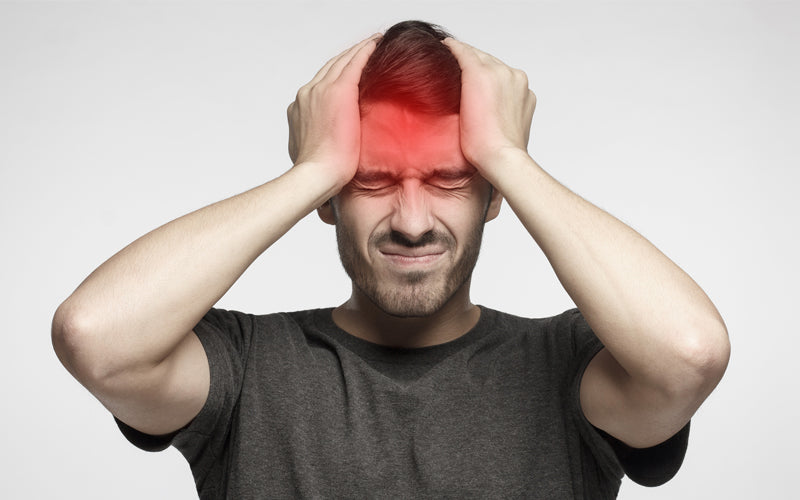
Can Pea Protein Cause Kidney Stones?
Pea protein offers a great way for those with kidney sensitivities to get enough protein. According to the National Institute of Diabetes and Digestive and Kidney Diseases, those who’ve had or are susceptible to kidney stones may need to limit the amount of animal protein they consume… and peas offer a way to replace that animal-based protein with plant-based source.16
Kidney stones have been linked to several different causes, including an excess of uric acid, which pea protein has been shown to help flush. Some develop kidney stones due to an excess of oxalate; peas are low in oxalate but high in protein, making them an excellent choice.
Can Pea Protein Cause Hair Loss?
Research has linked protein deficiency to brittle, weak hair and hair loss.¹⁷ Studies indicate that protein plays an important role in hair health. Hair growth rate, thickness, and strength depend in large part upon lysine, one of the nine essential amino acids found in pea protein. Without enough lysine, hair is limp, brittle and thin.
In contrast, a diet that’s unbalanced may cause hair issues. For instance, if you follow a high protein diet, you may limit carbohydrates. Your body uses carbs for fuel; if they’re not available, your body may convert fat to ketones and fatty acids. Over time, a poorly balanced diet may lead to nutritional deficiencies that may result in hair loss.
A balanced diet is a key to healthy hair. When included as part of a well-balanced diet, pea protein can aid in providing the amino acids you need to help you maintain shiny, strong locks.

Can Pea Protein Cause Nausea?
Our pea protein powder has a high digestibility rating—98 percent—means that it’s easy to digest, which results in less bloating and a happier tummy. This makes it a good choice for those who experience food sensitivities or have food allergies.
While nausea is not a common side effect of pea protein, it is important to know that some brands add sugars to their powders that have been known to cause nausea.18 Sweeteners such as sorbitol, maltitol and isolated fructose, which are added to many protein powders, are common culprits.
Dairy-based proteins may cause nausea or discomfort for those that are intolerant or allergic.
Can Pea Protein Cause Bloating?
What causes bloating? For those who are sensitive or allergic to dairy, proteins sourced from milk, such as whey and casein, may lead to bloat.19 Not everyone produces enough of a certain enzyme needed for successful digestion. That means undigested dairy hangs out in your system, producing gas and bloating. For those with allergies or intolerance, pea protein offers a clean, easily digestible alternative.

Can Pea Protein Cause Upset Stomach?
Another one of the top myths about pea protein is that it can cause an upset stomach, or be hard to digest. Fortunately, pea protein is highly digestible, ranking at an impressive 98 percent on the digestibility rating scale. This means that, for most people, pea protein should not cause an upset stomach or make you feel sick. Because pea protein lacks common food allergens, such as dairy, wheat, and nuts, it’s a better choice for those with food sensitivities or allergies.
For the many people that experience dairy intolerance, ingesting milk-based products leads to upset stomach, pain and even diarrhea, as their bodies cannot easily digest dairy. Pea protein offers an alternative. Free from dairy and other common irritants, Nuzest's pea protein offers a clean choice for those with food allergies, vegans and vegetarians alike.
Pea Protein for Weight Gain
If weight gain is your goal, pea protein can help. A clean, plant-based protein powder can support your dietary goals avoiding unnecessary sugars and other additives that your body doesn’t need. With its complete profile of essential amino acids, iron and calcium, pea protein delivers 18 to 21 grams of pure protein per serving, without empty calories from added sugars.
Another thing Nuzest leaves out? Common food allergens that can lead to discomfort and allergic reactions. That means no dairy, no gluten, no nuts, no eggs… Plus, Nuzest products are entirely plant-based, so our pea protein is appropriate for vegans and vegetarians alike.
Pea Protein for Muscle Gain
When it comes to gaining muscle, protein has long reigned supreme, and for good reason: you can’t build muscle without nine essential amino acids found in protein. Nuzest's vegan protein powder offers a clean, sustainable option that delivers up to 21 grams of protein, complete with all nine amino acids, and the caloric support you need to support building muscle mass.
Studies show that weight lifters who supplemented with pea protein experienced just as much muscle gain as those who used whey, and much more than those who used a placebo.20
Pea protein also offers an alternative to animal-based and soy-based proteins that may cause stomach upset, acne and other issues so often associated with whey and other dairy-based proteins. That’s because pea protein is sourced solely from plants, so it doesn’t contain dairy and other common food allergens.
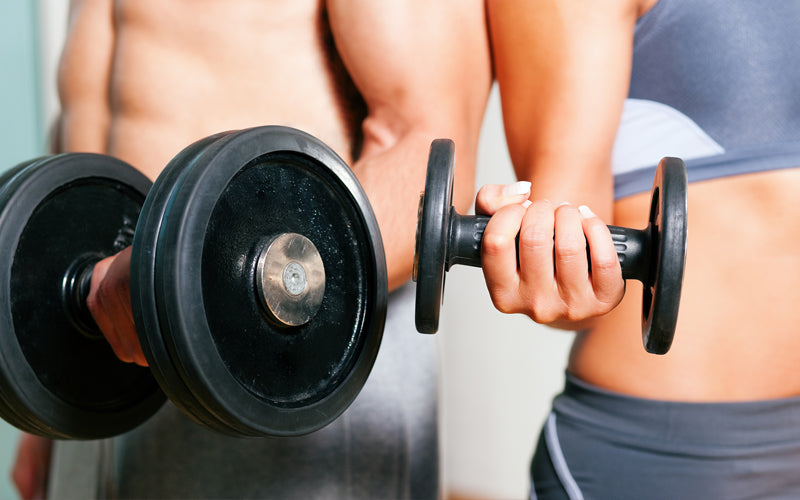
Pea Protein for IBS
For the 15 percent of the population that suffers from IBS (irritable bowel syndrome), pea protein offers a welcome alternative. 21 Unlike so many other protein supplements, Nuzest's products are not sourced from the foods most commonly associated with allergens, like wheat, soy, eggs, and dairy. Instead, it’s derived from plants, a clean, sustainable source that should not trigger IBS symptoms such as bloating, gas and abdominal pain.
Other protein powders often contain added sweeteners and sugars (a.k.a. carbohydrates) that are linked to exacerbate IBS. Research shows that those with IBS may want to avoid foods containing fructose and polyols,22 or sweeteners such as sorbitol, xylitol, and maltitol, none of which are found in our Digestive Support Protein.
Because pea protein is derived from isolate, which means the carbohydrates are removed, it doesn’t serve as an IBS trigger.
Pea Protein Tastes Bad
One of the top myths about pea protein is that it tastes bad. An important question remains: how does pea protein taste? Fortunately, pea protein tastes as good as it is good for you. Clean Lean Protein by Nuzest has a good mouthfeel, so it’s enjoyable to drink. Never gritty, this smooth protein powder mixes easily into water, your favorite plant-based milk, or smoothies.
Nuzest offers a range of flavors, too. You can use it as flour in baked goods (like these vegan chocolate chip cookies), sprinkle it into your oatmeal, or stir it right into your morning coffee… the recipe possibilities are endless (and delicious)!

Is Pea Protein Low FODMAP?
Nuzest's Clean Lean Protein is almost completely free from fermentable oligo-, di- and monosaccharides and polyols, also known as FODMAPs. In plain language, these are carbohydrates that many people have a hard time digesting and absorbing. When left in the gut, these carbs interact with intestinal bacteria, producing excess gas which leads to stomach pain, constipation, and diarrhea.
Pea protein’s lack of FODMAPs makes it a great choice for anyone following a low FODMAP diet. Nuzest pea protein doesn’t contain the types of carbohydrates and sugar-alcohols—such as disaccharides, fructans, monosaccharides, oligosaccharides, and polyols—that are harder for many to digest. For those that are sensitive to FODMAPs, gas, cramping, pain and bloating are common reactions after ingesting from FODMAP-containing foods.
A complete protein, Nuzest contains up to 90 percent protein, thanks to our isolation process in which yellow peas are ground to a fine powder. Starch and fiber—which contain FODMAPs—are then removed, leaving a clean, sustainable protein source. Clean Lean Protein offers a low-allergen, complete protein, that’s free not only from FODMAPs, but contains little to no lectins, phytic acid, saponins, trypsin inhibitors, or other anti-nutrients.
Is Pea Protein Safe During Pregnancy?
According to the World Health Organization (WHO), pregnant women require additional protein to support 13.8 grams of gestational weight gain; these requirements total 1, 9 and 31 grams per day in the first, second and third trimesters, respectively. Pea protein is a clean, sustainable protein source that’s low in food allergens and very digestible, making it a natural choice.
However, because every individual is different with specific nutritional requirements and health conditions, we always advise pregnant or breastfeeding women to speak with their Healthcare Practitioner before adding any nutritional supplements to their diet.

Is Pea Protein Hard to Digest?
You may have heard one of the top myths about pea protein: pea protein is hard to digest. Clean Lean Protein by Nuzest has a 98 percent digestibility rating. Because it’s free from common food allergens such as gluten, dairy, nuts, soy and eggs, pea protein is an ideal choice for those with food sensitivities and allergies.
If you have a dairy allergy, are lactose intolerant, allergic to soy or are prone to digestive upset, pea protein offers an alternative. It’s also 100 percent vegan and GMO-free, great news for those that follow a plant-based diet.
Clean Lean Protein by Nuzest is tummy-friendly. It’s fine grind and small particle size means it dissolves smoothly and easily, aiding in digestion and absorption.
Protein Without Lectins
If you’re avoiding lectins, Nuzest's pea protein offers an ideal alternative to other protein powders. Some research suggest that lectins, a type of proteins that occur naturally in plants but don’t offer nutritional value, may have adverse health effects if consumed in large quantities.23
Fortunately, lectins are removed from Nuzest's pea protein during our patented isolation process. Rather than using chemicals, as many protein powders do, our isolation process is water-based and enzymatic. That means no lectins and no harmful chemicals such as hexane.
Instead, you’ll simply find a highly concentrated, plant-based protein, complete with all nine essential amino acids…without all the lectins, added sugars and common food allergens found in so many other protein powders.
Clean Lean Protein by Nuzest is there to support your goals and offers an ideal plant-based protein choice. Free from common allergens, this vegan- and vegetarian-friendly powder is highly digestible, tummy-friendly and sourced sustainably. Given all the types of protein supplements out there, you’re inevitably going to have questions.
Myths About Pea Protein: Now You Know
Getting the facts about protein will help you make the right decision for your individual needs. So now that you know the top myths about pea protein, are you ready to give peas a chance?
References
- https://www.ncbi.nlm.nih.gov/pubmed/22988649
- https://www.ncbi.nlm.nih.gov/pmc/articles/PMC3900340/#r09
- https://www.ncbi.nlm.nih.gov/pubmed/17628647
- https://pediatrics.aappublications.org/content/132/Supplement_1/S17.2
- https://www.mayoclinic.org/diseases-conditions/lactose-intolerance/symptoms-causes/syc-20374232#
- https://draxe.com/pea-protein/
- https://www.ncbi.nlm.nih.gov/pubmed/25628520
- https://www.ncbi.nlm.nih.gov/pubmed/22916818
- https://www.ncbi.nlm.nih.gov/pubmed/26287637
- https://www.cancercenter.com/community/blog/2018/08/inflammation-linked-to-cancer-but-lifestyle-changes-may-help
- https://www.ncbi.nlm.nih.gov/pubmed/19890624
- https://www.ncbi.nlm.nih.gov/pubmed/12551878
- https://www.ncbi.nlm.nih.gov/pubmed/21442413
- https://www.jrnjournal.org/article/S1051-2276(17)30151-6/pdf
- https://www.jaci-inpractice.org/article/S2213-2198(19)30175-8/fulltext
- https://www.niddk.nih.gov/health-information/urologic-diseases/kidney-stones/eating-diet-nutrition
- https://www.ncbi.nlm.nih.gov/pmc/articles/PMC4828511/
- https://michigantoday.umich.edu/2019/04/09/fake-sweeteners-make-for-real-problems/
- https://www.health.harvard.edu/staying-healthy/the-dish-on-dairy
- https://jissn.biomedcentral.com/articles/10.1186/s12970-014-0064-5
- https://www.hopkinsmedicine.org/health/conditions-and-diseases/irritable-bowel-syndrome-ibs/5-foods-to-avoid-if-you-have-ibs
- https://health.clevelandclinic.org/take-control-of-ibs-with-low-fodmap-diet/
- https://newsnetwork.mayoclinic.org/discussion/mayo-clinic-q-and-a-what-are-dietary-lectins-and-should-you-avoid-eating-them/














